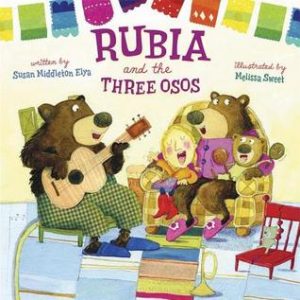Their little boy wants to make miracles: He would cure the sick, feed the hungry, jail the bad guys, and fill the world up with people who care and share. The story ends with a twist, bringing a very ambitious group of wishes back down to earth.
Author: Book Importer
My Tattooed Dad
A young boy describes what life is like when his dad comes home — how he fries up chicken samosas for dinner, how he makes jokes and fools around, and how he carries him off to bed when he is sleepy. His dad also tells wonderful stories of his adventures in far-off lands, often inspired by his many, many exotic tattoos. His letters to his son are also full of great stories about the past — what the first date with his mother was like (it included a visit to a fortune teller and a bizarre circus) and about how the boy’s life was saved twice by this very same dad — once when he was stolen from his baby basket by a dog and once when he flew out the car window. But as his mother says, his dad has ants in his pants, which means he’s often not around.Still, life rolls along with one fantastical tale after another, in good times and bad. And this is this extraordinary father’s gift to his child — the life of the imagination — which is always with him, even when his father is not.The illustrations have a nostalgic, underground graphic-novel style feel to them that perfectly complements the very original text.
Orani: My Father’s Village
As a child, Claire Nivola loved summers in Orani, the village where her father grew up and where her many aunts, uncles, and 50 cousins still lived. She ran freely through the town’s cobbled streets with packs of cousins, who quizzed her about America while she took in all the simple joys and pleasures of daily life in a village where surprises met them at every turn.
I Can Say Please
A delightful picnic between friends is made even sweeter by the ‘magic word’. Learning how to say please was never so much fun.
I Can Say Thank You
I Can Say Thank You follows the same group of friends as together they combine the joys of play with the various joys that nature provides.
I Love to Dance
Ollie loves to dance. He loves to dance in his room and in the leaves. He loves to dance with his dog, Fred. In this sweet, engaging picture book, Ollie celebrates dancing, friendship and fun.
I Love to Sing
Ollie loves to sing. He loves to sing in his bed or in the park. He loves to sing with his dog, Fred. In this sweet, engaging picture book, Ollie celebrates singing, friendship and fun.
The Great Bear
Once there was a dancing circus bear who spent her days in a cold, hard cage. Each night she was led to the town square, where acrobats, trapeze artists, and clowns performed for a boisterous crowd. The bear performed, too, year in and year out, lifting her feet and swaying to the music of trumpets, drums, and cymbals. As she danced, some people clapped, and many poked her with sticks or threw stones. One night, however, the bear did not dance. She stood very still. She finally can no longer stand the torment and determines to set herself free.
When I Love You at Christmas
Simply tie the front and back covers of this 14-page board book together, and get ready to celebrate! The two envelopes inside contain everything you need to decorate: sheets of stickers, shiny paper, and ornaments to cut out and color, plus tips for creating even more decorations for your very own tree.

